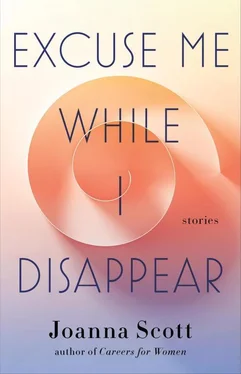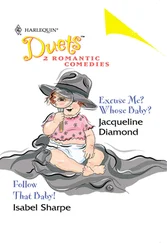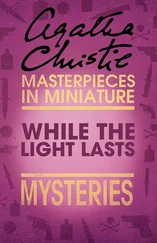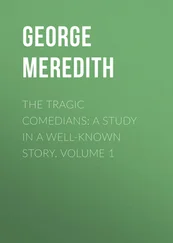Everybody was staring at her. Everybody would always stare at her. Even if they weren’t staring with their eyes, they were staring in their thoughts. She may have looked perfectly normal with her dark pigtails and big round eyes. But when she came back after disappearing on the E train underneath the East River, she was different. She couldn’t help it.
Early on, she listened to the story with fascination. But as the story evolved and Maya began to embellish it with details about Dorelia and Leon and Anselm and the others, listeners began to laugh. This was not the same sweet laughter Angelica had heard while she was falling. This was sour laughter, curdled like old milk, and she took to hiding beneath the table whenever her mother launched into a new retelling.
It wasn’t until she’d started school and learned to read that she felt curious about how the experience would affect her in the years to come. That’s when she began to look toward the future with great anticipation.
Report of a Disturbance
It turned out that an MTA employee riding in Car Five had watched the ruckus through the window panel of the door, and he put in a call to the transit police over his walkie-talkie. Two policemen were already waiting at Court Square when the train arrived, and more showed up within minutes. The passengers from Car Four were instructed to assemble on the south end of the platform, and they were interviewed one by one.
According to the official report, there was not sufficient evidence that a kidnapping had occurred, or had even been attempted. They couldn’t even ascertain whether the baby had gone missing at all. Maybe the mother had been mistaken. And yet her testimony was echoed by the girl from Iowa. And there were others suggesting that Homeland Security should be brought in. Passersby lingered, drawn by the sight of the extra police. As rumors spread, people from the street came down to see what they’d missed. They wanted to know what had happened, and if there were casualties, and who was responsible. They wanted to see what the police would do to prove their mettle.
#freakoutontheetrain
Kathleen Marie and Sally continued on to Sutphin Boulevard. Anselm arrived on time at his next meeting. Leon and Eduardo boarded different cars of a westbound train and headed back into Manhattan. Maya and Angelica went to visit a cousin. Jack was handcuffed and charged with disturbing the peace. Audrey went to one coffee shop, Alicia to another, and both unwittingly used the same hashtag for their tweets. Ziva lingered at the Court Square station, hoping to find someone who would listen to her.
Only Oskar…
…went directly home. He transferred to the bus and arrived on his block shortly before 3:30 that afternoon. He let himself into the brownstone and walked slowly up the two flights of creaking stairs to his apartment. Fiddling with the key in the sticky deadbolt, which needed a delicate touch, he had a realization. That time when he was a small boy and his father’s gardener hit him for blowing dandelion seeds across the lawn, it had hurt. But here’s the thing: he had managed to live for another sixty years without ever getting hurt again. All this time, he hadn’t really noticed how very careful he’d been, how deliberately he’d stuck to his routines in an effort to keep himself safe.
Unlike the Victim of the Electrocution in Times Square
According to the local evening news, some straphangers rushed to the ledge to help him and backed off when they saw sparks. That was the story that filled out the evening news that night—not the story of the E train, which no channel bothered to cover because no one would have believed it.
All Is Happiness, All Is Good.
The story, Maya liked to say, always ended with Eduardo. It was Eduardo the pan-pipe player, she said, who brought everything under control. Once the train had started moving again and Angelica was nestled safely in the sling pouch, Eduardo took it upon himself to entertain the passengers with the melancholy tune of a yaravi, which he couldn’t hear, of course, but which had the intended effect of providing a soothing focus of attention, drawing everyone away from the confusion of the moment to the southern sierra of Peru. Leon sat down, Dorelia stopped laughing, Angelica fell asleep. It was so sweet, Maya would say. Eduardo played as if stirring time with a spoon. He mixed and mixed, adding a little pinch of this and a little of that to blend the notes together. Until the train reached Court Square and the passengers headed to their next destination, all except Jack, there was nada to worry about, Maya would have liked to say. Her chica had come back.
The only detail Maya never knew was that charges against Jack were eventually dropped, thanks to Oskar, who returned to the Court Square precinct later that afternoon to point out that Jack couldn’t be guilty if none of this had ever happened.
The microfilm showed a water stain on the marbled cover, its tentacles extending toward the embossed lettering of the title. The filigreed etching on the frontispiece included a dedication to an earl from his “most obedient servant.” I don’t recall the author’s name, or the name of the earl. I scrolled through the reel so long ago that I’ve forgotten important details. I do remember that an early reader had penned some heated remarks in the margins of the prologue.
It was an odd prologue, to be sure, beginning with a long rant about the general uselessness of art, provoking from the anonymous reader comments that included “Vaporous flummery!” and “Piffle!” In one passage, over which the reader had scrawled a large X , the author argued forcefully that art has no measurable benefits, art begets only more art, art leads away from truth and offers no antidotes to the world’s problems. The author denounced painting, music, sculpture, and theater before singling out literature, comparing it to the marks left on skin when a mosquito bite is scratched. Concerning education, the author maintained that there are only two subjects worth studying: history, which can teach humanity to avoid repeating stupid mistakes, and “gloriously useful science.”
It became clear that the author regarded science not in its broadest, most traditional sense, as any form of knowledge that distinguishes itself from ignorance. Rather, he (she?) was championing only natural science, with its concern for the physical world, its quantifiable results, its classification of facts, and, most important, its predictive powers. The author went on at length about this last quality. I remember that next to the passage, the reader had written a long note that was impossible to decipher no matter how much I turned up the magnification on the machine. This seemed to be the point where the reader stopped reading, for there was no more commentary on the pages that followed.
* * *
Turning from the prologue to the first chapter, I was surprised, given the author’s disdain for literature, to find all the trappings of a novel. The chapter opened with a long description of a young girl named Williamina, pale and dark-eyed, wandering along the banks of the River Tay on the outskirts of the city of Dundee. She was dressed in a simple yellow frock, with a lace bonnet tied tightly over her coils of braids. What stood out most to me was that she wore no shoes. I’m not sure if I’m remembering correctly that she squished her bare toes in the mud—perhaps squished is my word—but I’m sure I’m right in recalling that she was prying freshwater mussels from the sides of rocks in the shallows.
Her fingers started to tingle from the cold water, and as she paused in her task to warm her hands in her pockets, the chatter of schoolgirls caught her attention. She watched them hurry along the path. One of the girls waved to her. She waved back. There had been a time when she longed to be among them, to finish her education and learn everything there was to know. She had given up school after her mother died. Now the students seemed as far from reach as a procession of clergy in church, and Williamina could only gaze at them with distant reverence.
Читать дальше












